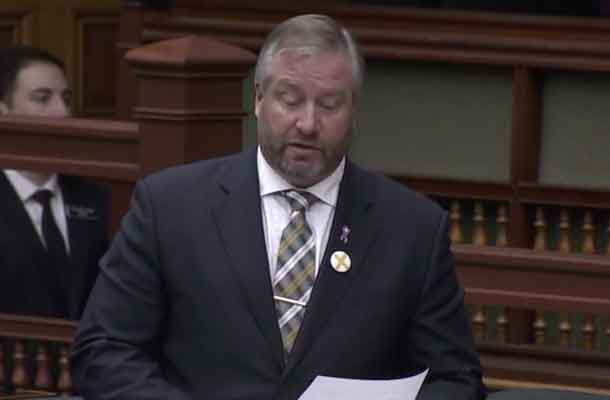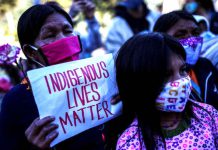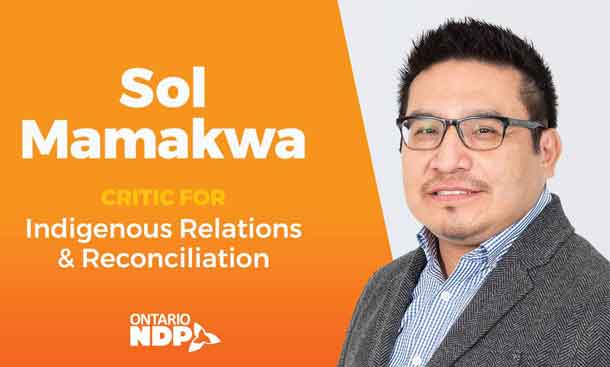QUEENS PARK – ENVIRONMENT – NDP Indigenous Relations and Reconciliation critic Michael Mantha said that the Wynne Liberals continues to fail the people of Grassy Narrows and Wabaseemoong First Nations, who are now fighting to get access to their own hair and blood samples to demonstrate the extent of mercury contamination in the nearby Wabigoon River. “Four years ago, the former chief of Grassy Narrows First Nation, Elder Steve Fobister, took the extreme and desperate step of going on a hunger strike to draw attention to the historic and ongoing poisoning from mercury of his community in nearby Wabaseemoong First Nation,” said Mantha, the MPP for Algoma-Manitoulin.
“At that time the Minister of Indigenous Relations committed to former Chief Fobister that action to change the badly broken system of compensation for the victims of mercury would follow. The federal government took thousands of samples of hair and blood from hundreds of members of these communities between 1970 and 2000, and only now, after a fight, are these community members gaining access to their own samples.”
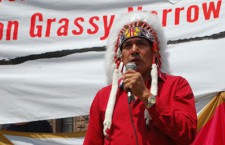
Minister Ballard (Environment and Climate Change) responded, “Back in December, we passed legislation that will provide $85 million in dedicated funding for the remediation of the English and Wabigoon Rivers, and we’re doing that with the active participation of a number of indigenous communities in an open and transparent way. We are sharing the data, we are inviting people to be on-site, and we are listening to the needs and the concerns of those communities.”
The Liberal Government says that efforts are being made to finally solve this long-standing problem.
“Subsequent to that in February, the four parties—federal government, the two First Nations and Ontario—met in April. As a result of that meeting, there was a further meeting in October where my ministry received a letter from Whitedog indicating their concerns about the Mercury Disability Board reform process. As a result of that letter, I met with Minister Philpott and the leadership of Grassy Narrows and Whitedog to discuss this issue further. As a result of that, we met in December—again, the four parties. Various written submissions were provided. In January 2018, we met with the representatives again. We are making progress on that. All of the parties are making their best efforts to resolve this,” said David Zimmer the Minister for Indigenous Affairs.
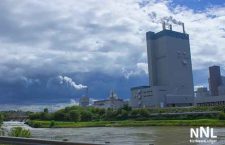
Mercury sampling of First Nations children and adults living along the English-Wabigoon River began decades ago, after a Dryden paper mill dumped 10 tonnes of mercury into the English-Wabigoon River, but families were not given access to their own results. A Mercury Disabilities Board set up in the 1980s has turned down nearly 70 percent of applicants asking for compensation.
In question period on Thursday, Mantha said that the Wynne Liberals continue to force First Nations communities to fight just to get the compensation that they deserve.
“The community has had to fight. The community has had to scrap and even have their youth thrown out of this very building, threatened to starve themselves to get recognition, and are still waiting for action from this Liberal government,” said Mantha.
“What has the minister done to honour his commitment to Chief Fobister to fix the broken compensation system and create a mercury-treatment home? What will your government do to ensure that every member of these communities receives compensation for the intergenerational harm done to their health and livelihood from the exposure to mercury?” asked Mantha.
Grassy Narrows Mercury Poisoning – Complete Text of Hansard
Mr. Michael Mantha: My question is to the Premier.
Four years ago, the former chief of Grassy Narrows First Nation, Elder Steve Fobister, took the extreme and desperate step of going on a hunger strike to draw attention to the historic and ongoing poisoning from mercury of his community in nearby Wabaseemoong First Nation. At that time, the now Minister of Indigenous Relations committed to Chief Fobister that action to change the badly broken system of compensation for the victims of mercury would follow.
The federal government took thousands of samples of hair and blood from hundreds of members of these communities between 1970 and 2000, and only now, after a fight, are these community members gaining access to their own samples.
My question is this: What has the minister done to honour his commitment to Chief Fobister to fix the broken compensation system and create a mercury-treatment home?
Hon. Kathleen O. Wynne: Minister of the Environment and Climate Change.
Hon. Chris Ballard: Thank you to the member opposite for that very important question.
We’re really concerned by the many challenges facing Grassy Narrows and Wabaseemoong First Nation. Our government is committed to working with First Nations to clean up the English-Wabigoon River system and to achieve real progress that will create a prosperous, healthy and strong community.
Back in December, we passed legislation that will provide $85 million in dedicated funding for the remediation of the English and Wabigoon Rivers, and we’re doing that with the active participation of a number of indigenous communities in an open and transparent way. We are sharing the data, we are inviting people to be on-site, and we are listening to the needs and the concerns of those communities.
The Speaker (Hon. Dave Levac): Supplementary?
Mr. Michael Mantha: Again to the Premier: The community has had to fight. The community has had to scrap—and has even had their youth thrown out of this very building—and threatened to starve themselves to get recognition, and are still waiting for action from this Liberal government.
My question, again, to the Premier: What will your government do to ensure that every member of these communities receives compensation for the intergenerational harm done to their health and livelihood from the exposure to mercury?
Hon. Chris Ballard: To the Minister of Indigenous Relations and Reconciliation.
Hon. David Zimmer: Speaker, there have been a number of actions taken to address this problem. I take you back to February 2017. That’s when we committed to Grassy Narrows First Nation and Wabaseemoong, or Whitedog, and the federal government to explore options to reform the Mercury Disability Board.
Subsequent to that in February, the four parties—federal government, the two First Nations and Ontario—met in April. As a result of that meeting, there was a further meeting in October where my ministry received a letter from Whitedog indicating their concerns about the Mercury Disability Board reform process. As a result of that letter, I met with Minister Philpott and the leadership of Grassy Narrows and Whitedog to discuss this issue further. As a result of that, we met in December—again, the four parties. Various written submissions were provided.
In January 2018, we met with the representatives again. We are making progress on that. All of the parties are making their best efforts to resolve this.

